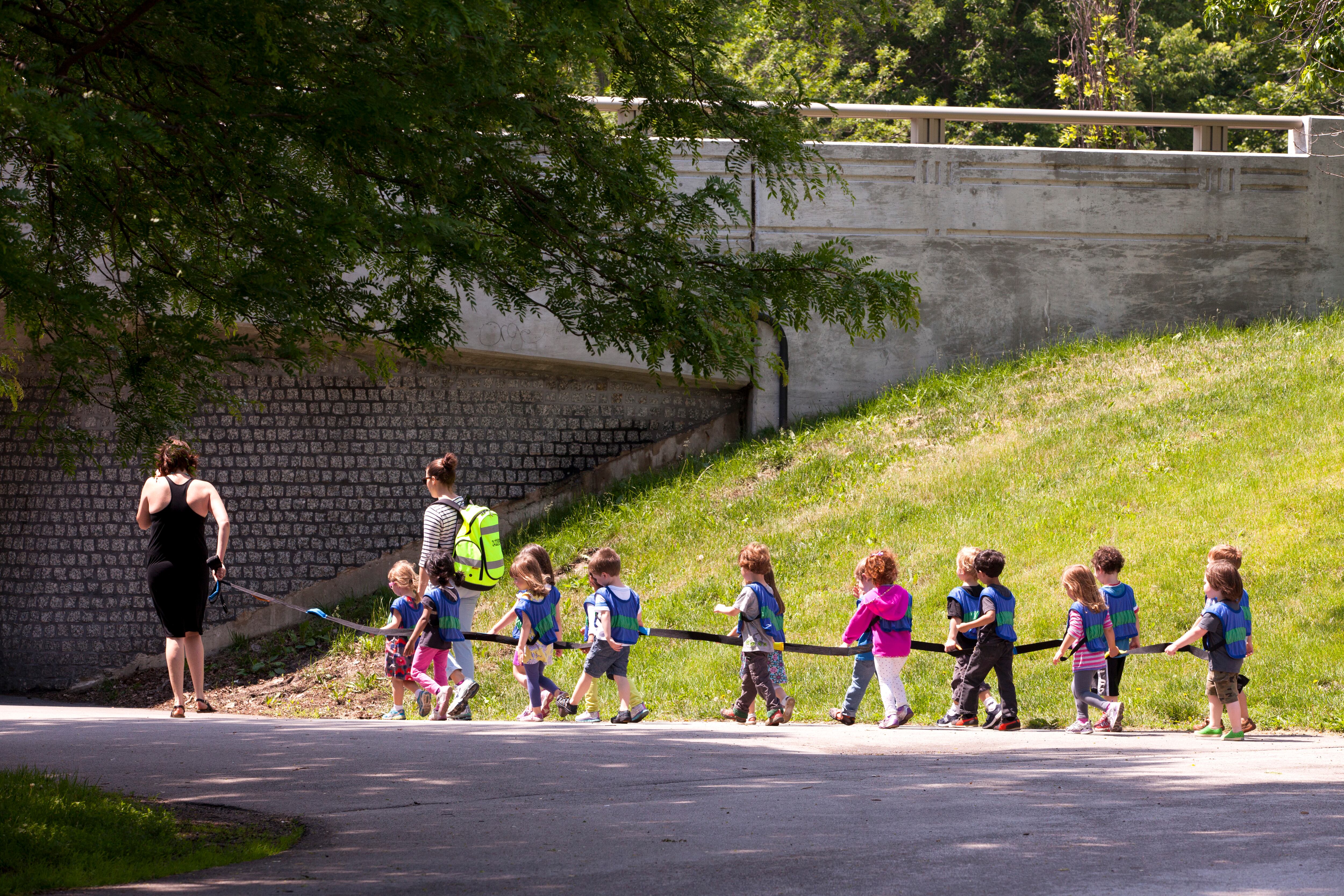Illinois will shore up the state’s child care centers with an additional $270 million, as operators and national advocates warn of a pending crisis in the sector.
The money comes from a business interruption grant program that uses federal coronavirus relief funds. Gov. J.B. Pritzker said Wednesday that Illinois is the first state to earmark such a sizable chunk of restoration grants specifically for care for children ages 5 and under.
“We are really the only state to do what we have done — to invest (these funds) in early childhood,” said Pritzker, a billionaire philanthropist who had deep ties to early education before he was elected in 2018. “But let’s face it, the industry has been harmed by coronavirus.”
As Illinois reopens child care centers, it has set stringent guidelines that increase costs for providers to operate. New rules require smaller class sizes, temperature screenings, deep cleanings, and other health and safety measures.
Only about 15% of the state’s centers remained open during the pandemic to care for the children of emergency workers.
When the pandemic hit, the state offered some short-term relief to closed centers, but that aid generally went to organizations that typically received public funding to care for children of low-income families. Many centers rely on private tuition and didn’t qualify.
Illinois and Chicago have both said child care centers can reopen now, but many providers have delayed by a few weeks as they scramble to comply with health and safety guidelines.
In Chicago, the child care sector has been roiled not just by coronavirus but by an overhaul in the way the city steers grant funds. At least 15 centers are set to lose significant dollars on June 30 and have warned of closures if the mayor doesn’t intervene.
Both the state government and the city are facing significant budget cuts due to the coronavirus and the resulting squeeze on revenues from stay-at-home orders.
Pritzker pledged at the end of last year to make Illinois the best state in the country to raise young children and said he hoped to lay groundwork for universal prekindergarten in his first term. Then coronavirus hit, battering state finances and the broader economy.
Acknowledging his pledge and the subsequent events, “the path forward has certainly become more complicated,” Pritzker said Wednesday.
State early education leaders have said fortifying child care is a critical step toward reopening the economy. In Illinois, more mothers are in the workforce than the national average, underscoring the need.
The state opened a survey on Wednesday to poll child care providers about their needs and solicit advice on how best to administer the grants, which will open in July.
Educators across the state are watching closely how the state reopens its child care centers, as it is likely some guidelines will inform rules for K-12 schools.
Pritzker said Wednesday that he is “determined” to reopen schools in the fall, but will look to health experts before making a final call. He said a decision is expected soon.






